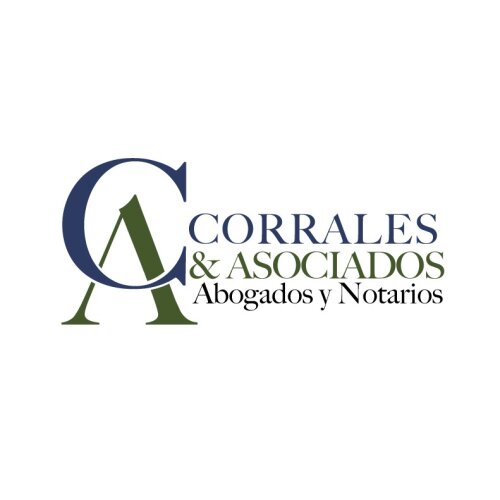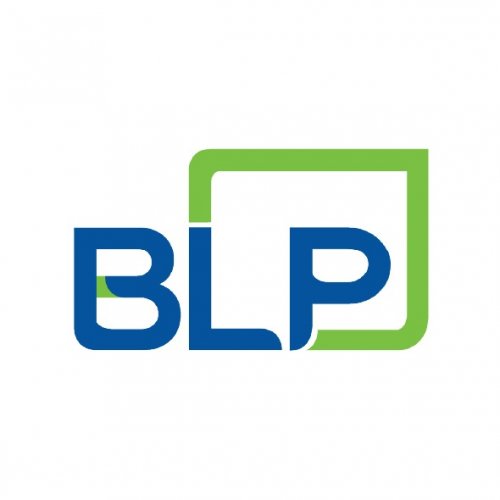Best Restructuring & Insolvency Lawyers in Nicaragua
Share your needs with us, get contacted by law firms.
Free. Takes 2 min.
Or refine your search by selecting a city:
List of the best lawyers in Nicaragua
About Restructuring & Insolvency Law in Nicaragua
Restructuring and insolvency law in Nicaragua encompasses the legal frameworks and processes developed to address situations in which individuals or businesses are unable to meet their financial obligations. This area of law provides methods for debtors to reorganize their affairs or, alternatively, for their assets to be fairly distributed among creditors. The primary goal is to provide both protection for creditors and a chance for viable businesses to recover and continue operations, where possible. Nicaraguan legislation seeks to balance the interests of all parties involved while helping to maintain the stability of the market and prevent abuse.
Why You May Need a Lawyer
Legal assistance is crucial in many restructuring and insolvency scenarios. You may need a lawyer if you:
- Are a business owner facing mounting debts and potential bankruptcy.
- Work for or own a company seeking to reorganize debt or assets to restore financial viability.
- Are a creditor concerned about recovering what you are owed from an insolvent individual or company.
- Have received notice of legal action or insolvency proceedings initiated by or against you.
- Need help understanding your rights during bankruptcy or liquidation procedures.
- Require negotiation or mediation with creditors to avoid formal insolvency proceedings.
- Want to challenge or defend the validity of creditor claims.
A lawyer's expertise ensures that your interests are protected, compliance with local laws is maintained, and you are guided toward the most effective solutions based on your unique circumstances.
Local Laws Overview
In Nicaragua, issues regarding restructuring and insolvency are primarily governed by the Código de Comercio (Commercial Code) as well as specific insolvency and bankruptcy statutes. The legal system distinguishes between different types of bankruptcy processes - namely, voluntary and involuntary insolvency. Key aspects include:
- Types of Insolvency: Nicaraguan law recognizes both civil insolvency (for individuals) and commercial bankruptcy (for businesses).
- Commencement of Proceedings: Proceedings may be initiated voluntarily by the debtor or involuntarily by creditors when debts are unpaid.
- Protection from Creditors: Once insolvency is declared, creditors are generally stayed from taking individual action, and debts are handled collectively.
- Asset Management: An administrator may be appointed to supervise and manage the debtor's assets during the process.
- Restructuring Alternatives: Viable businesses may pursue reorganization plans with creditor approval, potentially avoiding liquidation.
- Liquidation: If a restructuring is not feasible, assets may be sold off to repay creditors following strict legal priorities.
- Punitive Measures: Fraudulent bankruptcy or concealment of assets is subject to criminal penalties.
Each case follows defined procedures to ensure fairness and transparency for all parties involved.
Frequently Asked Questions
What is the difference between restructuring and insolvency?
Restructuring refers to efforts made to reorganize a debtor's financial obligations, business operations, or structure to overcome financial difficulties, while insolvency is the condition where an individual or company cannot pay debts as they fall due. Insolvency may lead to restructuring but can also result in liquidation.
Who can file for bankruptcy in Nicaragua?
Both private individuals and businesses (companies or partnerships) can file for bankruptcy in Nicaragua, either voluntarily or upon a creditor's petition.
What are the initial signs that I might need to consider insolvency procedures?
Persistent inability to pay debts, mounting creditor actions, legal claims or notices of bounced checks, and loss of access to financing are warning signs you may need to consider insolvency measures.
How are creditors paid during insolvency proceedings?
Payments to creditors are made according to a hierarchy established by law, with secured and privileged creditors typically paid first, followed by unsecured creditors. Any remaining funds go to shareholders or owners.
Can I keep operating my business during insolvency in Nicaragua?
It is possible if the court allows, particularly when the business has prospects for recovery under a restructuring plan. Otherwise, operations may be restricted or managed by an appointed administrator.
What happens to employees if a company enters insolvency?
Employee rights and wages are generally protected and often have a high priority in the distribution of assets. Employees may continue to work if operations are ongoing or may be entitled to specific compensations.
How long does an insolvency process usually take?
The duration depends on the case's complexity, the size of the debtor's assets and liabilities, and whether there is a restructuring or straight liquidation. It can range from several months to a few years.
Is personal bankruptcy available in Nicaragua?
Yes, individuals can declare personal bankruptcy under certain circumstances, resulting in court-supervised distribution of assets among creditors.
Can debts be discharged in bankruptcy?
While some debts may be extinguished through bankruptcy, others, such as tax obligations or child support, may remain enforceable depending on the circumstances and nature of the debt.
What should I do if I am notified about insolvency proceedings against me or my business?
Seek immediate legal assistance to understand your rights and obligations, prepare your defense or compliance strategy, and ensure your interests are effectively represented during the proceedings.
Additional Resources
Several organizations and governmental bodies in Nicaragua can provide information or assistance related to restructuring and insolvency, including:
- Supreme Court of Justice of Nicaragua (Corte Suprema de Justicia)
- Ministry of Economy, Industry and Commerce (Ministerio de Fomento, Industria y Comercio)
- Local Chambers of Commerce
- Bar Association of Nicaragua (Colegio de Abogados de Nicaragua)
- Approved mediators or insolvency administrators listed by judicial authorities
These resources can guide you to the correct procedures and provide official information or referrals to qualified professionals.
Next Steps
If you find yourself or your business facing financial distress or notified of insolvency proceedings, it is essential to act promptly. Start by:
- Collecting all relevant financial records, legal documents, and communications with creditors.
- Contacting a qualified lawyer experienced in insolvency and restructuring law in Nicaragua.
- Scheduling a consultation to assess your options, obligations, and the optimal strategy for your situation.
- Following professional advice and maintaining open communication with creditors and legal authorities.
Taking early and informed action can help you protect your rights, maximize available options, and reach the best possible outcome for your unique circumstances.
Lawzana helps you find the best lawyers and law firms in Nicaragua through a curated and pre-screened list of qualified legal professionals. Our platform offers rankings and detailed profiles of attorneys and law firms, allowing you to compare based on practice areas, including Restructuring & Insolvency, experience, and client feedback.
Each profile includes a description of the firm's areas of practice, client reviews, team members and partners, year of establishment, spoken languages, office locations, contact information, social media presence, and any published articles or resources. Most firms on our platform speak English and are experienced in both local and international legal matters.
Get a quote from top-rated law firms in Nicaragua — quickly, securely, and without unnecessary hassle.
Disclaimer:
The information provided on this page is for general informational purposes only and does not constitute legal advice. While we strive to ensure the accuracy and relevance of the content, legal information may change over time, and interpretations of the law can vary. You should always consult with a qualified legal professional for advice specific to your situation.
We disclaim all liability for actions taken or not taken based on the content of this page. If you believe any information is incorrect or outdated, please contact us, and we will review and update it where appropriate.
Browse restructuring & insolvency law firms by city in Nicaragua
Refine your search by selecting a city.










